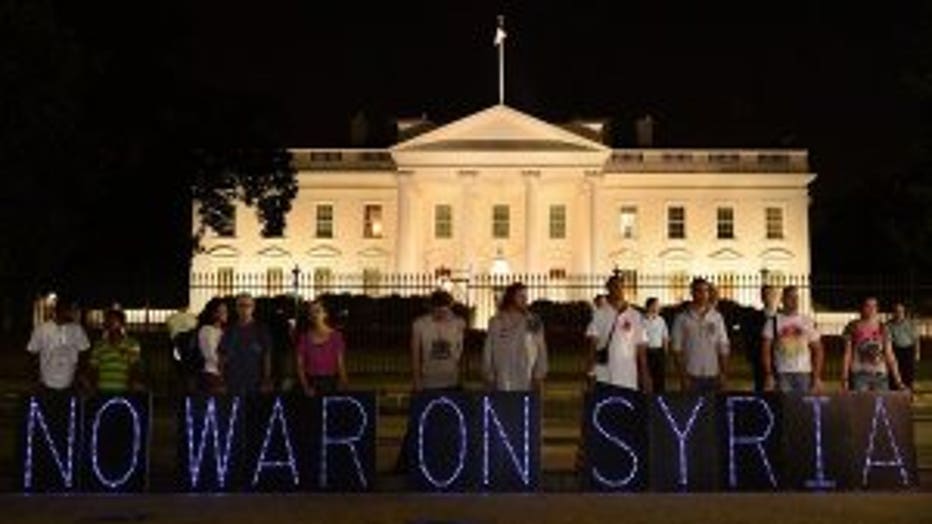Many in Congress unswayed by Obama's speech on Syria
By Lisa Mascaro and Michael A. Memoli
Los Angeles Times
WASHINGTON -- President Obama did not appear to immediately change many minds in one crucial voting bloc that watched his national address Tuesday on Syria: Congress.

Lawmakers on both the left and right remained largely dug into their positions, or stayed undecided, after Obama urged the nation to back his bid to launch punitive missile strikes against Syrian President Bashar Assad’s government for allegedly using chemical weapons against its people.
Obama said he had asked Congress to delay voting to authorize the use of force so the United Nations Security Council could consider a Russian diplomatic initiative to get Assad’s government to give up its chemical arsenal.
In a joint statement, Sen. John McCain (R-Ariz.) and Sen. Lindsey Graham (R-S.C.), who are among the most outspoken in calling for a military response, said they regretted that Obama “did not lay out a clearer plan to test the seriousness of the Russian and Syrian proposal to transfer the Assad regime’s chemical weapons to international custody.”
Others seized on the Russian offer as a potential way out of the crisis.
A group of eight senators, including McCain and Charles Schumer (D-N.Y.), began writing an amended resolution that would authorize a U.S. military strike only if the U.N. failed to pass a resolution to empower the international community to remove Syria’s stockpile of chemical weapons.
“The president tonight made a forceful and persuasive case to the American people that confronting Syria’s use of chemical weapons will keep our people and our troops safer,” said Sen. Carl Levin (D-Mich.), chairman of the Armed Services Committee. “I believe Congress can best support the goal of a diplomatic solution by approving a resolution that authorizes the use of force if Syria refuses to give up its chemical weapons.”
The White House outreach to both sides of the aisle picked up almost immediately after the speech.
Rep. Jason Chaffetz (R-Utah), who attended a meeting at the White House earlier Tuesday with Vice President Joe Biden, tweeted that he received a call from Obama’s chief of staff, Denis McDonough, only moments after the president finished his address to see if he had reconsidered.
He had not. "I am still a NO," Chaffetz wrote.
Lawmakers are watching public opinion, and several sought input from viewers as they weighed the options before them.
Rep. Michele Bachmann (R-Minn.), the tea party conservative, said her office had been “flooded” with calls of opposition. She will vote against authorizing use of force.
“Pres. Obama's speech didn’t convince me,” tweeted Sen. Rand Paul (R-Ky.), among the most outspoken opponents of a U.S.-led military strike on Syria.
With next year’s midterm campaigns about to launch, Rep. Steve Israel (D-N.Y.), who chairs the Democratic Congressional Campaign Committee, said earlier Tuesday that the 2014 elections would not be a referendum on the administration's handling of Syria.
But Obama's speech did little to sway potentially vulnerable Democratic incumbents in favor of a possible military strike.
Rep. Bill Foster (D-Ill.) said a military response was "something that we may ultimately need to consider" but that a diplomatic solution was preferable. "The choice to take military action is one of the most significant decisions a government can make and should only be used as a means of last resort," he said.
Rep. Ann McLane Kuster (D-N.H.), a freshman who was an enthusiastic backer of Obama in the 2008 primaries, said she continued "to have very grave concerns about the unintended consequences of U.S. military intervention in the region."
And Rep. Bruce Braley, the likely Democratic Senate nominee in Iowa, likewise said he was "still unconvinced that a limited U.S. military strike is the appropriate response to the atrocities committed in Syria."

